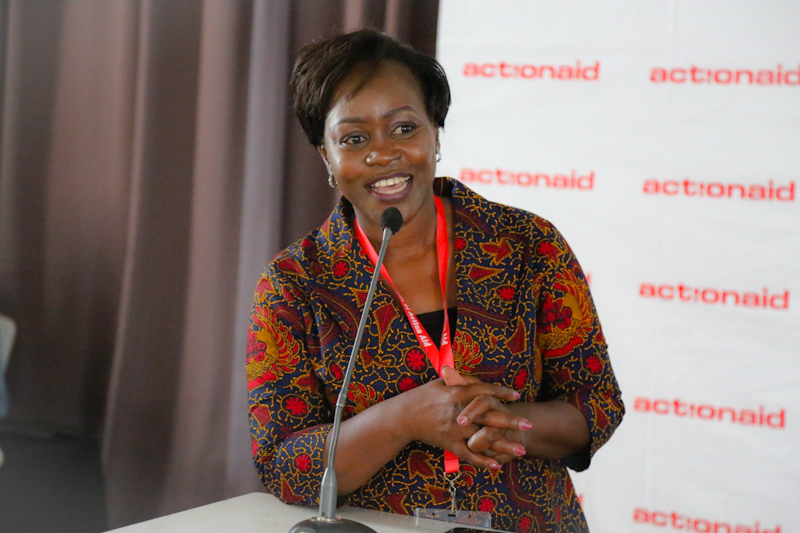Young women’s participation in Kenyan politics is likely to be excluded due to the coronavirus pandemic, Friends of ActionAid said.
Dr Loreen Maseno, Board Chair, Action Aid Kenya says young women in Kenya are the least represented amongst political leaders and their continued exclusion undermines the valuable contributions they make.
“That, if we are looking at young women’s participation in political spaces, then a second point to consider is that of the economic situation in the country as a result of COVID-19. There’s been a negative impact and reduced job opportunities and lower earnings. And we are all aware of that,” says Dr Maseno.
“The financial gains that had been received have been impacted because of loss of income. It has made campaign financing for women more challenging,” she added.
She was speaking at an open forum themed ‘Young wo/men’s participation in political spaces in the current environment. The forum sought to engage various stakeholders on why it was important to support young women and men seeking political leadership in the country ahead of the 2022 general Elections.
The Friends of ActionAid's theme is 'Young wo/men’s participation in political spaces amidst the current environment'. We believe in partnerships that foster meaningful participation. Be part of this worthy course by contributing to M-Pesa Paybill 899610, Account Name: FOA #FOAA
— ActionAid Kenya (@ActionAid_Kenya) September 30, 2021
Ms Susan Otieno, Executive Director, ActionAid Kenya emphasised that young women seeking elective positions are powerful advocates for social change and accountability towards a more just, sustainable and society.
“As an organization that as we celebrate 50 years, is an organization that is not standing alone, but standing with many more people, standing with the community that we work with an organization that will continue saying we are an apologetic about certain issues. We look out for women because they make the face of either the change or the challenge that you’ll find in a community,” she noted.
Their sentiments resonate with the Kenya Women’s Empowerment Index (WEI), which showed that only 29 per cent of Kenyan women can participate equally and effectively in political, economic, and cultural life — and that their involvement is largely dependent on household circumstances.
The WEI report was launched in August 2020, the Index provides the first comprehensive and systematic measure for women and girl’s empowerment in Kenya.
It was developed by the Kenya National Bureau of Statistics (KNBS) in partnership with the State Department for Gender, UN Women and UNICEF.
Based on data collected from 14,000 women aged between 15 and 49 years during the 2014 Kenya Demographic and Health Survey, the Kenya Women’s Empowerment Index is strongly rooted in existing legislation and policies.
Kenya has made commendable steps to increase women’s equality through policies and legislative frameworks including the Sexual Offences Act 2006, the Prevention Against Domestic Violence Act 2015, Policy on Eradication of FGM 2019, and the National Policy on Gender and Development 2019.
However, assessments such as The Global Gender Gap Report 2020 show that the country is still lagging in progress towards achieving gender parity, scoring lower than some of its peers in the region.
The 2010 Constitution provides that ‘not more than two-thirds of the members of elective bodies shall be of the same gender.
Kenya is also a signatory to international treaties that provide for equal rights of men and women in public life80 and ratified CEDAW in 1985 in the run-up to the Third Women’s Conference that was held in Nairobi in the same year.
Kenya also ratified the Protocol to the African Charter on Human and Peoples’ Rights on the Rights of Women in Africa (the Maputo Protocol)81 after the promulgation of the 2010 Constitution.
Article 177(1)(b) and (c) of the 2010 Constitution, which included in the composition of county assemblies ‘the number of special seats members necessary to ensure that no more than two-thirds of the membership of the assembly is of the same gender’.
Article 90 (1) provides that ‘elections for the seats in Parliament provided for under Articles 97 (1) (c) and 98 (1) (b), (c) and (d), and for the members, of county assemblies under 177 (1) (b) and (c), shall be on the basis of proportional representation by use of party lists’.




